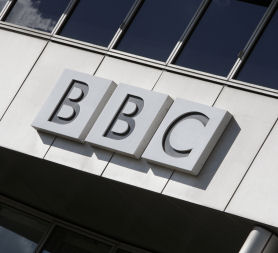BBC staff call off planned strike
BBC staff have called off a planned strike which would have blacked out David Cameron’s speech to next week’s Conservative Conference.

The 48-hour strike – which would have involved members of the National Union of Journalists and two other unions – was due to begin next Tuesday (5 October) and would have meant that BBC news programmes – including coverage of the Conservative Party Conference – would have been taken off the air.
But, following a meeting with management officials, union leaders said they would suspend next week’s action and carry out a ballot of their members after receiving an improved offer on planned changes to pension terms.
“We have had a significantly improved offer from the BBC which we believe is the best that can be achieved through negotiation,” said Gerry Morrissey, the General Secretary of the broadcasting workers’ union, Bectu.
He said that, should members accept the offer, the threat of strikes would be lifted, but if not a second planned 48-hour strike – set for 19-20 October and coinciding with the Chancellor’s announcement of his spending review – could yet go ahead.
Earlier, the newly-elected Labour Leader, Ed Miliband, had joined BBC presenters and correspondents in urging the unions to call off next week’s action “interests of impartiality and fairness”.
“My speech was seen and heard on the BBC and in the interests of impartiality and fairness, so the prime minister’s should be,” said Mr Miliband.
Jeremy Paxman, Huw Edwards, Nick Robinson and Emily Maitlis weere among 36 top presenters and political journalists who wrote a letter to BBC staff warning them that strikes would damage the BBC, while “looking unduly partisan, particularly when none of the other party conferences have been targeted”.
Yesterday the BBC Director General Mark Thompson told staff he thought the Tory conference was not the right moment to strike while asking them to “reflect” on the choice of dates. He also announced that he and other senior executives would give up their pension top-ups.